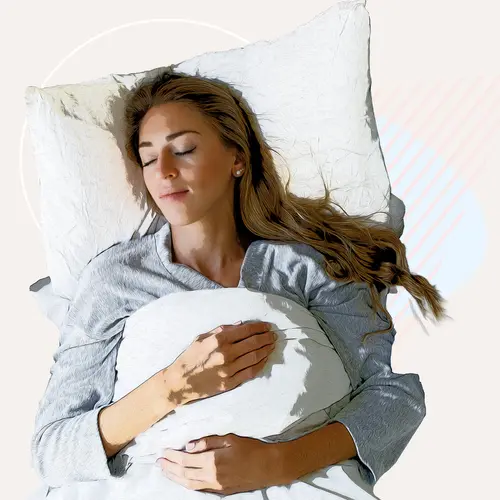One night after lights out, a man sleeping next to his wife began doing something that troubled her deeply. After they had sex, he fell asleep -- and then masturbated. And when he awoke the next morning, he couldn't remember what he had done. This happened a few more times before the bewildered couple decided to seek help, says neurologist Michel Cramer Bornemann, MD, professor at the University of Minnesota.
The fallout from this startling episode was upsetting, he says; the woman feared she wasn't satisfying her husband sexually or emotionally. But her spouse's problem wasn't so much a relationship issue as a sleep disorder called sexsomnia.
Also called "sleep sex," sexsomnia is a type of parasomnia, where the brain is caught in transition between sleeping and waking states. As with other parasomnias -- including sleepwalking, sleep talking, and, yes, sleep driving -- someone who is sleep sexing can seem fully awake and aware, even as they are masturbating, or fondling, initiating intercourse with, or even sexually assaulting a bed partner. But they truly are asleep. In fact, a diagnosis of sexsomnia has been used as a defense in several rape and molestation cases in recent years.
What Causes Sexsomnia?
"This is very well-accepted as a diagnosis within the field of sleep medicine," says Cramer Bornemann, who is also the co-director of the Minnesota Regional Sleep Disorders Center in Minneapolis. "It's different than having a sexual dream. It's full-fledged sexual behavior while asleep."
While doctors aren't sure what causes sexsomnia, they do know that it starts after puberty and that people who sleepwalk or sleep talk are more at risk for sexsomnia than people who don't. Drinking alcohol, taking recreational drugs, suffering sleep deprivation, and experiencing stress are triggers.
Sexsomnia isn't terribly common. One study released last June found that almost 8% of 832 patients surveyed at a sleep disorders center reported having engaged in sexual activity while asleep, with men reporting it three times as often as women (11% versus 4%). Researchers think the incidence is lower among people who don't already have sleep problems. About 4% of all adults sleepwalk, for example.
In the case described above, the man ended up taking a kind of antiseizure medication commonly used for anxiety and insomnia. And because his wife continued to be distressed by her husband's behavior (and he continued to feel guilty), "it took counseling for them to truly reconcile," Cramer Bornemann says.
Treating Sexsomnia
Diagnosed with sexsomnia? Cramer Bornemann offers treatment options:
Avoid sexsomnia triggers, including alcohol and drug use. A study found that people who use recreational drugs are twice as likely to have sexsomnia as those who don't.
Treat any underlying sleep apnea by, for instance, losing weight, quitting smoking, getting a continuous positive airway pressure machine, or having surgery. Research shows that simply getting more sleep helps reduce apnea episodes.
Be careful with sleep medication. Doctors aren't sure why, but in some cases, "some kinds of sleep medication actually activate parasomnias," Cramer Bornemann says. Talk to your doctor before starting or stopping sleep meds.

